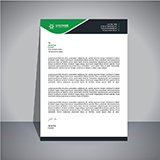Independent insurance agencies have their hands full keeping carriers happy. Poor production and profit results can sour carrier relationships, but problems can stem from other disagreements. The quality of an agency’s recordkeeping actually caused a lawsuit.
A well-known insurer group hired the agency to manage a limousine and taxi program. The program lasted a mere four years. At its inception, the group and the agency signed a managing producer agreement that, along with the typical provisions of an agency-carrier contract, obligated the agency to maintain in its office underwriting files on each account written in the program. Each file had to contain:
- Copies of the policy, endorsements, cancellation and other notices, forms, and renewals
- Correspondence and account activity worksheets
- Underwriting and pricing documents including applications, binders, financial reports, loss control reports, and experience and schedule rating modification worksheets
- Rating worksheets
- Loss information
- Other documents such as certificates of insurance, audit reports, bills, reinsurance agreements, and finance agreements
The contract also required the agency to maintain financial and insurance records for all accounts written in the program. The records had to meet accounting principles and regulatory requirements and kept in a manner compatible with the carrier’s internal computer systems.
What the contract required and what actually happened were very different things. Rather than keeping the files in one office, the agency spread records around several systems in multiple locations. Electronic records for limousine accounts were stored primarily in the agency management system, with backup tapes made of messages on an email server. The lead taxi underwriter lived in Florida; his underwriting records (other than emails) were stored on a separate agency server. For three months before the program’s terminations, the agency stored emails on a server hosted by another management system vendor.
In the insurer group’s opinion, these “shoddy documentation” practices caused it to suffer two categories of losses:
- Violations of carrier underwriting guidelines on 25 accounts, leading to losses from individual car accidents totalling $45,566,867.96
- Uncollectable deductibles and deductible collateral for 11 accounts, totalling $5,019,149.29
In court, the agency and insurers squabbled over the contract provisions’ meanings. The insurers held that “file” meant a paper folder or box containing documents in a specific order. In their opinion, the contract did not permit the agency to keep a “jumbled, ad hoc mass of hundreds of thousands of documents” as the underwriting file. The agency argued that the contract defined “underwriting file” by its content, not its location or form.
The agency also maintained that the insurers knew how the files were stored and did not object, while the insurers insisted that they knew nothing about “thousands of additional emails and account-related records” not saved to the management system or discrete files.
The court rejected the insurers’ claims of damages. The insurers, the judge wrote, “identified no evidence whatsoever that any alleged failure with respect to maintenance of the underwriting files deprived (them) of information … requested or needed with respect to (the accounts.)” Since the insurers could not show that the agency’s recordkeeping practices caused the losses, he ruled in favor of the agency.
The agency won, but this story is really about poor communication between them and the insurers. The recordkeeping requirements in the contract may have received scant attention at the time they launched the program. Afterward, neither side apparently spoke with the other about the importance and sufficiency of recordkeeping. This dispute could have been avoided if they’d discussed the matter before losses came in. Agencies should be aware of all obligations under carrier contracts and get clarification of any that are uncertain.















